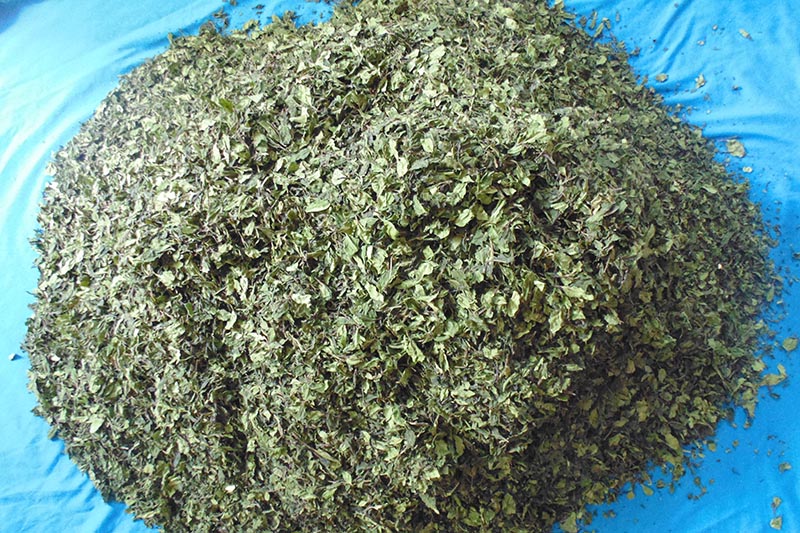Drugs disguised as green tea for smuggling
Kathmandu, November 29
The Narcotics Control Bureau said drugs were also being smuggled from Nepal to foreign countries under the guise of exporting green tea.
It came to light after the anti-drug agency of Nepal Police recently arrested three Somalian nationals Ibrahim Ali Haji, 22, Jam Abdifathi Ahmed, 21, and Abdifahad Tusuf, 25, with eight kg khat (catha edulis), a stimulant plant native to Nepal.
According to NCB, the trio were arrested while they were trying to smuggle the leaves of khat to Netherlands via Ethiopia by using a Thamel-based cargo service. It was keeping constant surveillance on suspects acting on intelligence that some foreigners were involved in smuggling the psychoactive plant to European and African countries.
Schedule (III) of the UN Convention on Psychotropic Substances, 1971 to which Nepal is a party has listed khat as a plant banned for harvesting, possessing, trading and smuggling. Khat is cultivated in some countries of the region and is commonly chewed as a stimulant.
NCB said khat comprises the leaves and fresh shoots of Catha edulis, a flowering evergreen shrub. The principal active components in khat are cathinone and cathine. Chewing khat releases these substances into the saliva. Both cathinone and cathine are closely related to amphetamine and the pharmacological effects of cathinone are qualitatively similar to those of amphetamine although it is less potent.
The World Health Organisation has also classified the use of khat leaves as drug abuse and its regular users can develop a psychological dependency to the drug. Khat produces appetite suppression and euphoria, causing constipation, ulcers, depression, insomnia and finally cancer. Use of khat has been a tradition for centuries throughout Somalia, Yemen and Ethiopia.
NCB warned that it was acting tough on cultivation, harvesting and trafficking of khat across the country.






